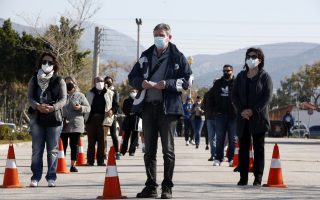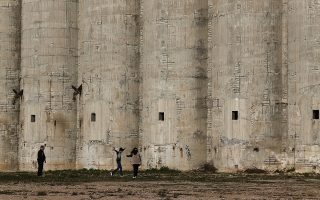Concern over slow vaccination rates

With a series of meetings on Thursday and Friday with Greek seniors, Prime Minister Kyriakos Mitsotakis is coordinating efforts to convince as many people as possible to get vaccinated against the coronavirus amid reservations stemming from the contradictory reports concerning the AstraZeneca jab.
Tellingly, only 47% of the 60-64 age group have either had a dose of the vaccine or made an appointment to do so.
Nonetheless the government predicts that these reservations will quickly subside given that the vaccination rate is significantly higher in the 70-80 age group.
More specifically, the percentage is 57% in the 70-74 group and 75% in the 75-79 group, which is deemed very satisfactory. It is 63% for the 80-84 groups and 62% for those aged 85 and above.
Based on the above data, the average rate of those aged over 60 who have been vaccinated is 60%.
The government considers this a good percentage but nevertheless also see a lot of room for improvement as experts say that the vaccination of over-60s is pivotal in Greece’s effort for a return to normalcy.
This is because, despite the indisputable fact that even young people are also at risk of serious illness, older people are generally more vulnerable and end up in hospital and intensive care units more easily.
Bearing this in mind, the government sees their shielding from the virus through vaccinations as imperative because it will allow for the greater easing of social and economic restrictions and will essentially mark a total return to normalcy – notwithstanding the safety rules in place this summer as well.
This shielding effect provided to older people has already been observed during the third wave of the pandemic, which despite its severity, has had a smaller impact than the previous waves, as the average age of intubated patients is much lower, while hospital admissions of people over 75 have also decreased.
Meanwhile on Friday Greece’s National Vaccination Committee restricted the use of the AstraZeneca vaccine to people over the age of 30.
The UK-developed vaccine, which has come under scrutiny in recent weeks over its connection with a handful of cerebral blood clotting cases, had initially been restricted to people between the ages of 18 and 64 as a result of a shortage of studies on its effects on people aged over 65.





